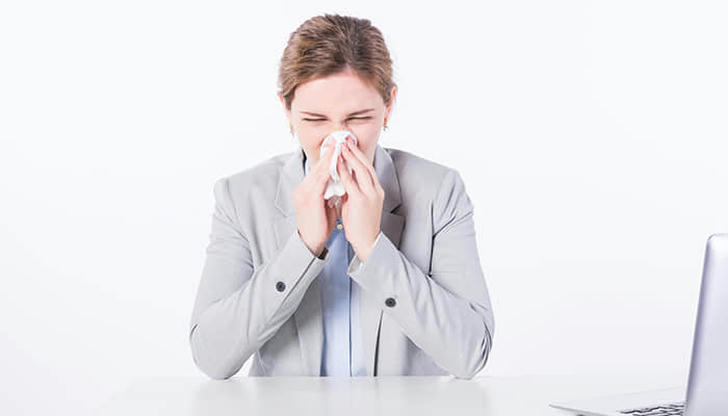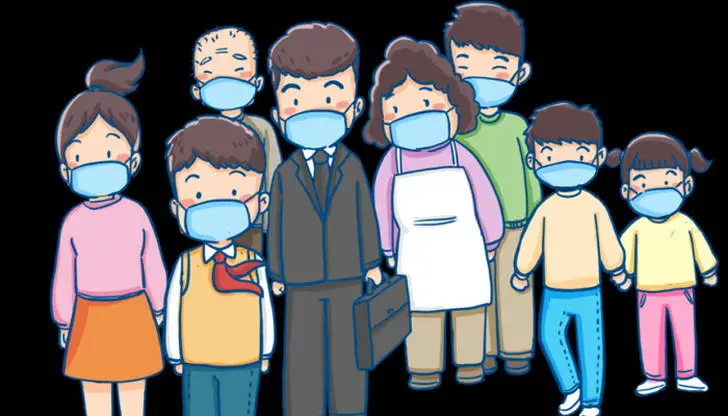7 Proven Tips for Preventing Seasonal Flu
Advertisement

The seasonal flu is a respiratory illness that typically occurs during the winter months. It is caused by the influenza virus and can lead to a range of symptoms, including fever, cough, sore throat, body aches, and fatigue.
The good news is that there are steps you can take to prevent the flu from spreading. Also, it can protect you and your loved ones from the flu and help you enjoy a healthy, happy life.
Tip #1: Get vaccinated

The most effective way to prevent the flu is to get vaccinated. The flu vaccine is a safe and effective way to protect yourself from the virus and reduce your risk of getting sick. The vaccine works by stimulating your body's immune system to produce antibodies that can fight off the flu virus. It takes about two weeks for the vaccine to become fully effective, so it's best to get vaccinated early in the flu season. There are two types of flu vaccines: the flu shot and the nasal spray. The flu shot is recommended for everyone aged six months and older, while the nasal spray is only recommended for healthy people aged two to 49 who are not pregnant. In addition to getting vaccinated, it's also important to prevent the flu from spreading and to protect those who are unable to get vaccinated, such as young children and people with certain medical conditions.
Tip #2: Practice good hygiene

Another important way to prevent the spread of the flu is to practice good hygiene. This includes:
• Wash your hands regularly with soap and water for at least 20 seconds, especially after coughing or sneezing, before eating, and after using the restroom.
• Cover your mouth and nose with a tissue or your sleeve when coughing or sneezing.
• Avoid touching your face, especially your eyes, nose, and mouth.
By practicing good hygiene, you can reduce your risk of getting sick and prevent the spread of the flu virus to others.
Tip #3: Boost your immune system with a healthy lifestyle

One of the best ways to prevent the flu is to maintain a healthy lifestyle. This includes:
• Eating a healthy diet that is rich in fruits, vegetables, whole grains, and lean protein.
• Stay hydrated by drinking plenty of water and avoiding sugary beverages.
• Regular exercise can help boost your immune system and lower your risk of getting sick.
• Getting enough sleep, which is critical for maintaining a healthy immune system.
By taking care of your body and staying healthy, you can reduce your risk of getting sick and increase your body's ability to fight off infections.
Tip #4: Stay away from sick people

Another important way to prevent the spread of the flu is to avoid contact with people who are sick. This includes:
• Stay home if you are sick, and avoid close contact with others until you have recovered.
• Avoid crowded places, such as public transportation, shopping malls, and movie theaters, especially during peak flu season.
• Wear a mask if you need to be around someone who is sick, especially if you are at high risk of complications from the flu.
By staying away from sick people, you can reduce your risk of getting sick and prevent the spread of the flu virus to others.
Tip #5: Know the signs and symptoms of the flu

Finally, it's important to know the signs and symptoms of the flu so that you can take action early if you do get sick. The symptoms of the flu typically include:
• Fever
• Cough
• Sore throat
• Body aches
• Headache
• Fatigue
If you have any of these symptoms, it is critical that you rest at home, drink plenty of fluids, and avoid contacting with others until you have recovered. If your symptoms are severe or you are at high risk of complications from the flu, such as young children or older adults, it's important to seek medical attention right away.
Tip #6: Natural remedies for flu prevention and treatment

While there is no cure for the flu, there are some natural remedies that may help prevent or treat the symptoms of the virus. These include:
• Drink plenty of fluids, such as water, tea, and soup, to stay hydrated and relieve congestion.
• Use a humidifier to moisten the air and relieve irritation in your throat and nasal passages.
• Take over-the-counter pain relievers, such as acetaminophen or ibuprofen, to reduce fever and relieve body aches.
• Use saline nasal drops or a neti pot to clear nasal congestion and relieve sinus pressure.
• Taking supplements, such as vitamin C, zinc, and echinacea, may help boost your immune system and reduce your risk of getting sick.
Tip #7: Additional tips for preventing the spread of the flu

In addition to these five tips, there are other things you can do to prevent the spread of the flu, including:
• Avoid close contact with people who are sick
• Frequently touched objects and surfaces should be cleaned and disinfected.
• Avoid touching your eyes, nose, and mouth
• Wear a mask if you need to be around someone who is sick
The seasonal flu can be a serious illness that can lead to a range of symptoms, from mild to severe. However, if you keep these tips in mind, you can stay healthy all year and live a happy, flu-free life.



